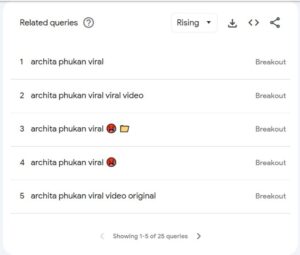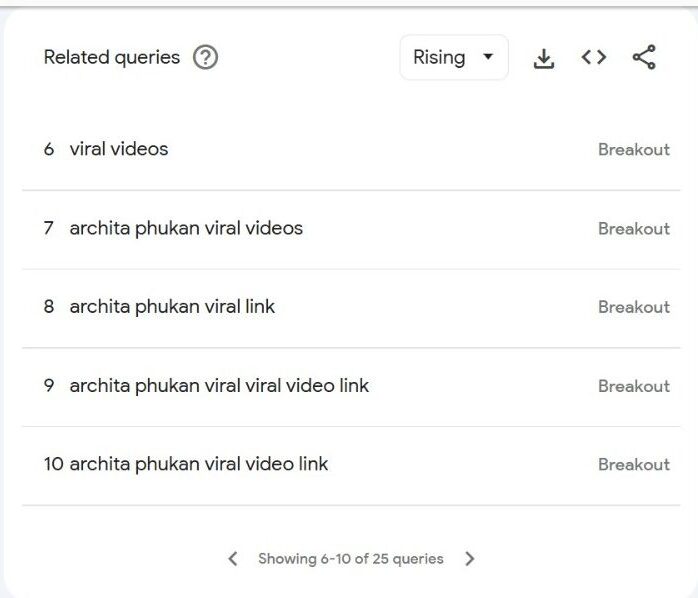A woman named Archita Phukan, with the Instagram name Babydoll Archi, took over Instagram with bold photos, a backstory that pulled at heartstrings, and the kind of content that stops you mid-scroll. She quickly gained over 1.4 million followers, became a viral name, and even made money off subscriptions. But the twist is that she wasn’t real. The creator of the account used a woman’s face without her knowledge. Welcome to the dark side of AI and social media, where people can steal your image, turn it into a fantasy, and sell it to the masses. All without your consent.
Who is Babydoll Archi?

The account looked like your usual edgy influencer profile — bold photos, emotional captions, and a story about surviving sex trafficking. There were claims that “Archi” escaped from a brothel, paid ₹25 lakh for her freedom, and was now helping others do the same. She was positioned as a kind of online hero: sexy, damaged, empowered. As you’d expect, people love sad and empowering stories. They liked, commented, and reposted. Some paid to see more. And why not? Babydoll Archi also posted photos with Kendra Lust, an American adult star. Anyone would believe it’s all real. However, the entire persona was fake, yet it was built around a very real victim: Archita Phukan.
Archita is a woman from Assam who had absolutely no connection to any of this. Her ex-boyfriend, Pratim Bora, used a photo of her and, with the help of AI tools like Midjourney and OpenArt, created hundreds of fake images and videos. He built a full-blown identity out of a photo and reportedly earned ₹10 lakh online through paid subscription of this AI-generated content.
This wasn’t just some harmless joke. This was deliberate, exploitative, and targeted. The kind of content Bora created wasn’t just fake; it was sexualised, suggestive, and personal. And Archita didn’t know about it until it blew up.
Let’s call it what it is: Revenge porn
This is revenge porn, plain and simple, just with newer tools. Bora didn’t share private photos; he created them using AI. He sexualised a real woman without her permission, made up a story to get sympathy and attention, and profited off her identity. It was after Babydoll Archi shared a photo with Kendra Lust that people started speculating. When they came to know about the account, Archita’s family filed a complaint with the police. Bora was then arrested. Investigators are examining his devices, and he has been charged under cyber crime and defamation laws. Apparently, he did it all because she broke up with him and he was “hurt”.
What about the 1.4 million people who followed Babydoll Archi?

Let’s be honest here: this account wouldn’t have gone anywhere if people didn’t love the content. Over a million people followed, engaged, shared, and paid. Why? Because the content looked good. And people are quick to follow a sexy, sad story, especially when it’s wrapped in filters and sold as “empowerment”.
The line between real and fake has officially vanished. AI can now simulate people, manipulate emotions, and monetise the very idea of someone, all without them knowing. Meanwhile, the law is struggling to keep up. Platforms are still largely unaccountable. And public empathy? Selective, at best. The only real defence we have left is awareness of what we consume, what we endorse, and whose story we believe.
This case also holds up a mirror to us as a society because this is how her name shows up on Google Trends. This clearly reflects what we search and want to see online.


The Babydoll Archi case is about more than just one guy with bad intentions. The internet normalises the mistreatment of women, people misuse AI without consequences, and audiences easily ignore red flags when problematic content goes viral. This isn’t just a tech problem. It’s a people problem. And it won’t stop until we start asking better questions, holding platforms accountable, and making sure consent still matters, even online.
Featured Image Source
Related: Radhika Yadav Murder And The Myth Of Empowered Women In A Man’s World

 Web Stories
Web Stories











